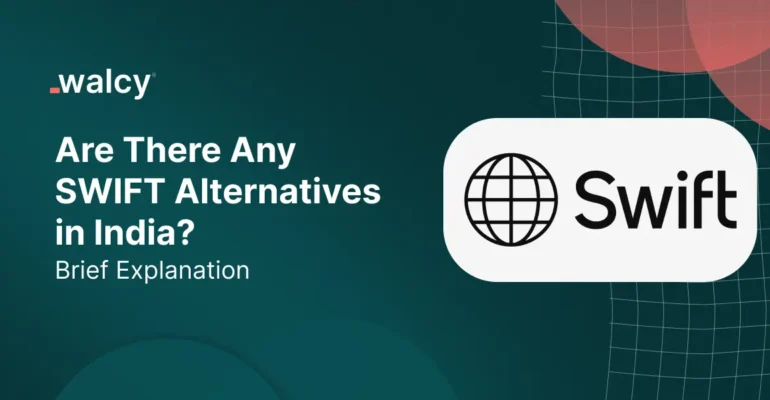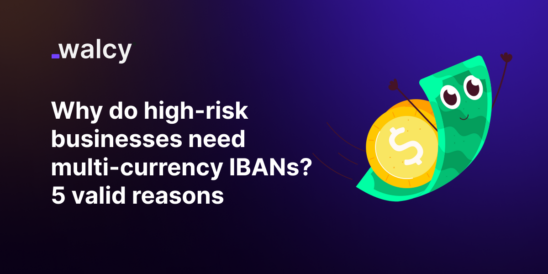From the dynamic world of financial transactions, the SWIFT network has traditionally been the backbone of international money transfers. Despite the global financial ecosystem becoming increasingly diversified, No SWIFT alternatives have emerged to date that improve efficiency, cost-effectiveness, and speed. However, some probable services could be a threat to Swift in the future. The present blog engraves an account of such probable SWIFT alternatives in India and their potential impact on the future of international payments.
Probable SWIFT Alternatives in India
IMPS (Immediate Payment Service)
IMPS disburses funds instantly and has been on the rise for domestic transactions. In the case of international transfers, the IMPS can be utilized together with partner banks that have cross-border services. This system provides real-time transfer capabilities, therefore very useful for quick transactions. Generally, IMPS is operational 24/7 during weekends and holidays; hence, it gives great flexibility and convenience to users both in domestic and international services.
On top of this, integration into mobile banking platforms further increases its accessibility, allowing a user to start transactions from any place and at any time.With further advancement in the future, it has the potential to be the alternative to the Swift messaging system.
Unified Payments Interface (UPI):
UPI has revolutionized India’s domestic payments with its real-time and seamless transactions. Now, the huge potential up for grabs is to be able to relate to this scale with the international payment system. Plan and work around the possibility of allowing such kinds of payments in international markets for starters. The Ministry of Electronics and Information Technology is also actively working on these plans to extend the reach of UPI beyond domestic limits. This shall include a framework for making such international payments in line with foreign banks and payment providers.
Initiatives of this sort make UPI a strong contender for cross-border transactions not long from now. However, their success would depend on the acceptance and international adaptation of the technology under standardization.
Blockchain Technology:
Blockchain technology is a nascent competitor to SWIFT, being open-source and decentralized, with each process transparent per se. As the blockchain infrastructure matures, this may just be the enabling factor for quick international payments at reduced costs and improved security. Although adoption is still very early, the growing interest and increasing investment in blockchain solutions suggest that it may turn out to be a very important rival in the global financial transaction sphere.
TransferWise:
TransferWise, now rebranded as Wise, has already made its mark as a low-cost alternative for international transfers. With its very transparent fee structure and information on live exchange rates, it is strongly positioned to replace traditional SWIFT transactions. While Wise is growing its offerings and technology, more than likely to grow in a leading position for cross-border payments in the future and within the Indian market.
Rising Fintech Solutions:
The landscape of FinTech is changing day by day, with several startups and innovations eyeing a disruption in traditional financial systems. New technologies and platforms are constantly under development; most of them have the possibility of becoming potential alternatives to SWIFT. This would make available more efficient, cost-effective, and user-friendly solutions in the marketplace, increasing the chances of viable alternatives in India even more.
Government initiatives by the Indian government to encourage better digital financial services may support the development of alternatives to SWIFT. In many ways, this kind of collaboration between financial institutions, technology providers, and regulatory bodies can help to accelerate new-system adoption. Government support in terms of investments in digital infrastructure and international partnerships could be the drive that the alternative needs in India from SWIFT.
Benefits of Having SWIFT Alternatives
- Cost Efficiency:
Most of the SWIFT alternatives charge lower fees and prices are more transparent, hence decreasing the cost associated with international transactions. More importantly, this will greatly benefit small businesses and individuals who find the fees limiting.
- Speed:
Compared to SWIFT transfers, other alternatives, such as IMPS and digital payment gateways, offer superior processing times. At the same time, real-time transfer can prove to be of great value in time-critical needs that involve payments, such as emergency funds or urgent business transactions.
- Accessibility:
It makes use of newer technologies and platforms that are more accessible to users across the globe, including emerging markets. Most of them are easy to use, with user-friendly interfaces and mobile app support, therefore bridging the gap in international payments for many people.
- Transparency:
Another area of increased transparency and security that blockchain technology offers is the avoidance of the possibility of fraud and human error. Each transaction is recorded in a ledger open for everyone to see, leaving a very clear and transparent record of all transfers.
Challenges and Considerations to Develop Swift Alternative
Regulatory Compliance:
Developing an effective substitute for SWIFT will have to take into consideration the many different international regulations. It should, therefore, be fully compliant with AML and CTF standards. Because of country-specific rules, it becomes very necessary that a mechanism be made in such a way as to cater to different legal requirements on a trans-border basis.
Integration with Existing Systems:
Setting up a new payment system and integrating it with legacy infrastructures is not at all easy. Most of the traditional systems are deeply rooted in financial operations; therefore, shifting to another system requires huge effort and cost. One has to take good care of the compatibility issues with the technologies in use to achieve smooth integration without affecting the ongoing operations.
Security and Fraud Prevention:
The alternative to SWIFT should incorporate robust security measures, using the latest cryptographic and authentication techniques, to eliminate fraudulent transactions and cyber-attacks. Developing a secure system that gains the trust of users requires rigorous security measures that will never end, coupled with incessant monitoring of threats.
User Adoption and Trust:
User acceptance of a new system for payments may be very hard to get, especially where users are used to traditional ways of doing things like SWIFT. Clear communication of the benefits it is going to bring on board in terms of ease of use and nice customer support is needed, and attending to any concern relating to reliability and security.
Scalability and Performance:
Any alternative to SWIFT should be able to process volumes of transactions with optimum efficiency. Thus, it has to be highly scalable to growing demand, working with high performance and speed. Scalability is about handling future growth and creating a seamless user experience.
Interoperability and Collaboration:
Any new system would have to be interoperable with existing financial networks. For this, coordination would be required with international banks and major payment processors. Partnerships would need to be established, and compatibility ensured in various systems to facilitate seamless transactions across borders and thus encourage its wide adoption.
You shall love: What Is Swift Payment Network? How It Works in 2024? | Expanding Business Internationally: Must Know Things
Conclusion
In essence, the world of international payments is changing. From the systems available, it can be found that viable alternatives to the traditional SWIFT network are emerging technologies. As things currently stand in the context of India, there doesn’t appear to be a clear, direct alternative to SWIFT. Technologies like UPI and blockchain, along with platforms such as Wise, are at the forefront of changing cross-border transactions.
The potential of UPI for further expansion abroad and the promise of blockchain for decentralized and secure transactions make it a sea change in how finally global payments may be hiked. Wise institutionalizes a transparent fee structure and real-time exchange rates for the growing trend of more efficient and cost-effective payment solutions.
Several challenges, however, need to be surmounted before such alternatives can fully come into their own. These range from complex regulatory environments to the integration with pre-existing financial infrastructures that ensure appropriate security measures, attaining a pervasive adoption by the users. The technologies are ever-changing and have much promise to move over into making international payments more efficient and accessible when these issues are sorted out.
These innovations have the potential to define the future of cross-border transactions and indeed give a striking glimpse of a future global financial system where financial operations are smoother and less expensive.
FAQs
What are the major benefits of using SWIFT alternatives?
SWIFT alternatives charge lower fees, process transactions faster, and come with more access compared to traditional SWIFT transactions. Most of them are cost-friendly and user-friendly.
How does IMPS differ from NEFT and RTGS?
IMPS transfers funds instantly, 24/7. On the other hand, NEFT does it in batches, and RTGS does high-value transfers in real time during business hours.
How does blockchain technology improve payment security?
Blockchain is irrevocably secure due to the decentralized, open nature of its ledger, making transactions tamper-proof and greatly reducing the occurrence of fraud.
What challenges might arise when adopting SWIFT alternatives?
Challenges include regulatory compliance, integration with infrastructure built earlier, and user resistance to change from familiar methods.
Get to know about the international payment fees | Know everything about the overseas payments
Do follow us on Facebook and Linkedin, to stay connected with us.



